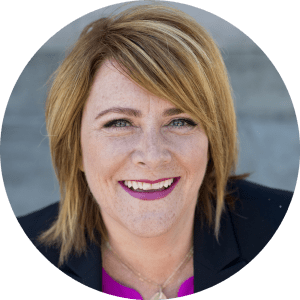With all the attention on the New Year, I vacillate between enthusiasm and indifference. I can relate to the hopefulness of possibility as well as the cynicism of short-lived commitments, and it has me reflecting on my relationship with self-help and self-improvement.
I like fresh starts and the feeling of a clean slate. At the beginning of a new semester, I loved getting my notebooks, pens, highlighters, and planner ready. I was filled with hope and the promise that THIS was the start of a NEW ME.
I would say to myself, “This will be the year I will not procrastinate. I will study and do my work along the way versus waiting until the last minute. This time I will be different.”
Any guesses where this is headed? Fast forward a few months, and I was pulling “all-nighters” studying for a test I wasn't prepared for or getting my research paper done last minute and beating myself up because here I was again.
It really looked like my character was the issue. I wasn't disciplined enough. I wasn't focused, I had bad habits, and I was a horrible student.
This is just one example of the many ways I was sure that I needed fixing. I was worried that my bad habits, lack of discipline, and procrastination were signs of a deeper issue. I had flaws that were keeping me from experiencing my best self.
The path of self-help, self-improvement, and personal development has been a constant in my life. I've always been curious about transformation and how it happens.
It has been a path of understanding myself and creating amazing friends and community, and it has shown me my passion and shaped the career I love.
It has also taken me down the rabbit hole of “never enough” and becoming an ongoing project and work in progress. It has left me with an underlying hum of dissatisfaction and a highly tuned eye for what was wrong with me.
Thankfully, that path has also led me to a new understanding of who I am. Eventually, I would come to see that hyper-focusing on everything that needed fixing and my inability to see my wholeness was causing my suffering.
If I acknowledged my wholeness, then how can I also see myself as broken?
What if our starting point is whole and complete?
Seeing ourselves as whole & complete doesn't mean we don't change or evolve. It means we aren't looking at ourselves from a deficit.
Whole does not mean perfect: it means embracing our humanness as an integral part of life while also embracing our deeper core – our essential nature.
Our wholeness takes into account that we all come with our unique quirks, AND we come with a powerful internal resourcefulness.
That deeper nature, well-of-being, or what people might call our human spirit, is not fragile – it is not broken – it is rich with insight, resilience, well-being, creativity, and connection.
When we see our wholeness, we appreciate that we have everything we need to evolve and meet the challenges of our work and life.
Instead of the pursuit of fixing, we allow all of who we are to be part of our experience. When we aren't preoccupied with fixing, tweaking, or trying to be better, we connect to our true selves.
What if this New Year, this new beginning, starts first with whole & complete?
Where would you go? What would you let go of, and what would you lean into?
Where would you put your energy if fixing and improvement weren't your focus?

